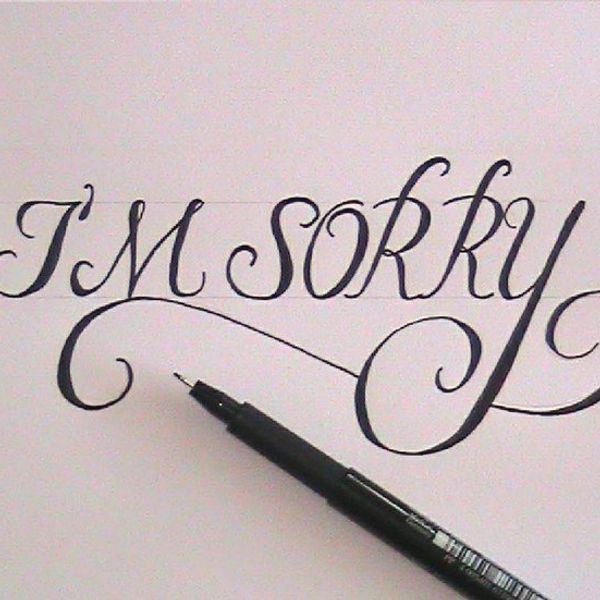According to the Daily Mail , people say “I’m sorry” about 3,000 times a year, or roughly 8 times a day. Celebrities apologize. Political figures apologize. Most importantly, we and the people around us apologize.
So why so many apologies? All of us learned how to say “I’m sorry” when we were very young, probably shortly after we learned to speak and started making friends. Perhaps we’re trying to defuse a tense situation, such as a fight with our roommates or partner; or we feel like we’re inconveniencing someone.
Each quick “sorry” when we bump into someone really adds up. But it’s not the quantity of apologies that is an issue, but the sincerity. Women especially over-apologize because we’ve been socialized to apologize for speaking, having an opinion, or taking up space—but that’s another topic.
Most of us have been in a situation where we gave a token apology to someone when it was expected of us, but we didn’t really mean it. I can think of ten times I’ve apologized this week when it wasn’t actually required. Sometimes, this can be as inconsequential as apologizing when a stranger runs into you, which is easily forgotten.
Other times, it can be frustrating to feel that we are forced into apologizing to someone because we feel like we didn’t really do anything wrong. This leaves us with unresolved anger that can strain or even destroy relationships.
According to Laura Beck’s article on the blog Jezebel, “Sorry Not Sorry”, there’s a way to get around the frustrating insincere apology: non-apologizing, or using the word “sorry” but still standing by your words or actions. Here are some suggestions from the Jezebel team:
- Sorry if I hurt your feelings.
- Sorry you're offended.
- Sorry you didn't get the joke.
- Sorry if you were disturbed.
- Sorry you're upset.
And some of my own:
- Sorry you can’t deal with what I’m saying.
- Sorry I’m not sorry.
- Sorry this bothered you.
- Sorry that you’re not okay with this.
What non-apologies do is allow us to acknowledge hurt feelings, derail needless anger and defuse tense situations without giving up our words or actions. In other words, it makes the other person feel good without actually caving in and making yourself feel bad by apologizing for something you didn’t want to apologize for. Everybody walks away with their feelings soothed. It’s a win-win situation, especially when both people are absolutely convinced that they’re right.
So what does this mean for the way we apologize?
It means that every time we apologize, every apology should be heartfelt. It means that when we don’t want to apologize, we don’t apologize, but we do acknowledge the other person’s feelings. Apologizing shouldn’t be a requirement, but instead, a voluntary indication that says, “Hey. I screwed up. I hurt you. I didn’t mean to do that.” After all, nobody needs to apologize all the time, but everybody needs to apologize when we mean it.





















